Related Research Articles
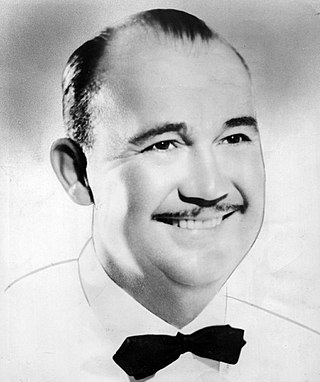
Paul Samuel Whiteman was an American bandleader, composer, orchestral director, and violinist.

James Hubert "Eubie" Blake was an American pianist and composer of ragtime, jazz, and popular music. In 1921, he and his long-time collaborator Noble Sissle wrote Shuffle Along, one of the first Broadway musicals written and directed by African Americans. Blake's compositions included such hits as "Bandana Days", "Charleston Rag", "Love Will Find a Way", "Memories of You" and "I'm Just Wild About Harry". The 1978 Broadway musical Eubie! showcased his works, and in 1981, President Ronald Reagan awarded Blake the Presidential Medal of Freedom.

Lew Brown was a lyricist for popular songs in the United States. During World War I and the Roaring Twenties, he wrote lyrics for several of the top Tin Pan Alley composers, especially Albert Von Tilzer. Brown was one third of a successful songwriting and music publishing team with Buddy DeSylva and Ray Henderson from 1925 until 1931. Brown also wrote or co-wrote many Broadway shows and Hollywood films. Among his most-popular songs are "Button Up Your Overcoat", "Don't Sit Under the Apple Tree", "Life Is Just a Bowl of Cherries", "That Old Feeling", and "The Birth of the Blues".

Harold Arlen was an American composer of popular music, who composed over 500 songs, a number of which have become known worldwide. In addition to composing the songs for the 1939 film The Wizard of Oz, including "Over the Rainbow", which won him the Oscar for Best Original Song, he was nominated as composer for 8 other Oscar awards. Arlen is a highly regarded contributor to the Great American Songbook. "Over the Rainbow" was voted the 20th century's No. 1 song by the RIAA and the NEA.

William Elden Bolcom is an American composer and pianist. He has received the Pulitzer Prize, the National Medal of Arts, a Grammy Award, the Detroit Music Award and was named 2007 Composer of the Year by Musical America. He taught composition at the University of Michigan from 1973 until 2008. He is married to mezzo-soprano Joan Morris.
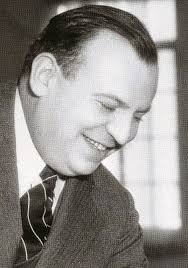
Alexander Dubin was an American lyricist. He is best known for his collaborations with the composer Harry Warren.
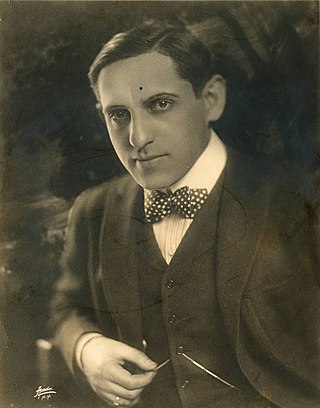
Gustave Edwards was an American composer, songwriter and film director. He also was a vaudevillian, organised his own theatre companies and was a music publisher.
Wilfrid Howard Mellers was an English music critic, musicologist and composer.
Nathaniel Davis Ayer was an American composer, pianist, singer and actor. He made most of his career composing and performing in England in Edwardian musical comedy and revue. He also contributed songs to Broadway shows, including some of the Ziegfeld Follies.

"The Lamb" is a poem by William Blake, published in Songs of Innocence in 1789.

Songs of Innocence and of Experience is a collection of illustrated poems by William Blake. It appeared in two phases: a few first copies were printed and illuminated by Blake himself in 1789; five years later, he bound these poems with a set of new poems in a volume titled Songs of Innocence and of Experience Shewing the Two Contrary States of the Human Soul. Blake was also a painter before the creation of Songs of Innocence and Experience and had painted such subjects as Oberon, Titania, and Puck dancing with fairies.
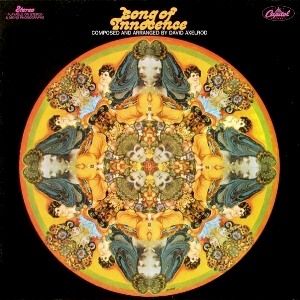
Song of Innocence is the debut album by American composer and producer David Axelrod. It was released in October 1968 by Capitol Records. In an effort to capitalize on the experimental climate of popular music at the time, Axelrod composed the album as a suite-like tone poem interpreting Songs of Innocence, a 1789 illustrated collection of poems by William Blake. Recording took place at Capitol Studios in Los Angeles with an orchestra and studio musicians from the Wrecking Crew collective, including keyboardist and conductor Don Randi, guitarist Al Casey, bassist Carol Kaye, and drummer Earl Palmer.
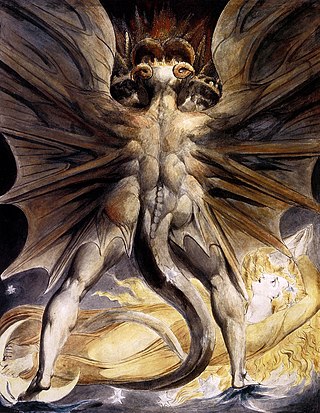
William Blake's body of work has influenced countless writers, poets and painters, and his legacy is often apparent in modern popular culture. His artistic endeavours, which included songwriting in addition to writing, etching and painting, often espoused a sexual and imaginative freedom that has made him a uniquely influential figure, especially since the 1960s. After Shakespeare, far more than any other canonical writer, his songs have been set and adapted by popular musicians including U2, Jah Wobble, Tangerine Dream, Bruce Dickinson and Ulver. Folk musicians, such as M. Ward, have adapted or incorporated portions of his work in their music, and figures such as Bob Dylan, Alasdair Gray and Allen Ginsberg have been influenced by him. The genre of the graphic novel traces its origins to Blake's etched songs and Prophetic Books, as does the genre of fantasy art.
W. Augustus Barratt was a Scottish-born, later American, songwriter and musician.
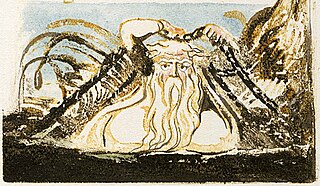
"The Human Abstract" is a poem written by the English poet William Blake. It was published as part of his collection Songs of Experience in 1794. The poem was originally drafted in Blake's notebook and was later revised for as part of publication in Songs of Experience. Critics of the poem have noted it as demonstrative of Blake's metaphysical poetry and its emphasis on the tension between the human and the divine.

The Voice of the Ancient Bard is a poem written by the English poet William Blake. It was published as part of his collection Songs of Innocence in 1789, but later moved to Songs of Experience, the second part of the larger collection Songs of Innocence and of Experience, 1794.

John Lionel Golden was an American actor, songwriter, author, and theatrical producer. As a songwriter, he is best-known as lyricist for "Poor Butterfly" (1916). He produced many Broadway shows and four films.
Songs of Innocence is an illustrated collection of poems by William Blake, the first book of two in Songs of Innocence and Experience.

Songs of Innocence and Experience is an album by American beat poet and writer Allen Ginsberg, recorded in 1969. For the recording, Ginsberg sang pieces from 18th-century English poet William Blake's illustrated poetry collection of the same name and set them to a folk-based instrumental idiom, featuring simple melodies and accompaniment performed with a host of jazz musicians. Among the album's contributors were trumpeter Don Cherry, arranger/pianist Bob Dorough, multi-instrumentalist Jon Sholle, drummer Elvin Jones, and Peter Orlovsky – Ginsberg's life-partner and fellow poet – who contributed vocals and helped produce the recording with British underground writer Barry Miles.
Calling All Stars is a 1934 musical revue with music by Harry Akst, lyrics by Lew Brown, and orchestrations by Hans Spialek and Conrad Salinger. Featuring separate segments of sketch comedy rather than a unified plot, the dialogue of the musical was written by Lew Brown, A. Dorian Otvos, Alan Baxter, Home Fickett, William K. Wells and H.I. Philips. Al Goodman served as the original production's music director which was produced and directed by Lew Brown. Sara Mildred Strauss and Maurice L. Kussel choreographed the show, Nat Karson designed the sets, Billi Livingston designed the costumes, and Abe Feder designed the lighting.
References
- ↑ Roscoe Orman Sesame Street Dad: Evolution of an Actor 2006 1592992102 p.13 "She and her husband, the gifted composer-musician Norman Curtis, recruited me and others among my 1962 graduating class at A&D to join the cast of their topical musical revue If We Grow Up."
- ↑ Norman Curtis - REC Music Foundation Composer: Norman Curtis (b. 1933). Alphabetic listing of art song and choral settings in the database.
- ↑ Catalog of Copyright Entries: Third series Library of Congress. Copyright Office - 1967 - Page 183 FREEDOM CALLING; w Patricia Taylor Curtis, m Norman Curtis. Score (27 p.) © Norman Curtis ft Patricia Taylor Curtis;
- ↑ The New Yorker 1968 - Volume 44, Page 6 "Most of the music is by Norman Curtis and most of the words are by Patricia Taylor Curtis."
- ↑ Donald Fitch Blake Set to Music: A Bibliography of Musical Settings of the Poems p.55 "Mad Blake; a musical, book by Elyse Curtis, music by Elyse and Norman Curtis"
- ↑ The Triangle of Mu Phi Epsilon 1959 " Peggy will sing selections from the new song cycle "Songs of Innocence" by Norman Curtis, with the composer at the piano. A capacity audience is expected at the Lyon-Healy Concert Hall."